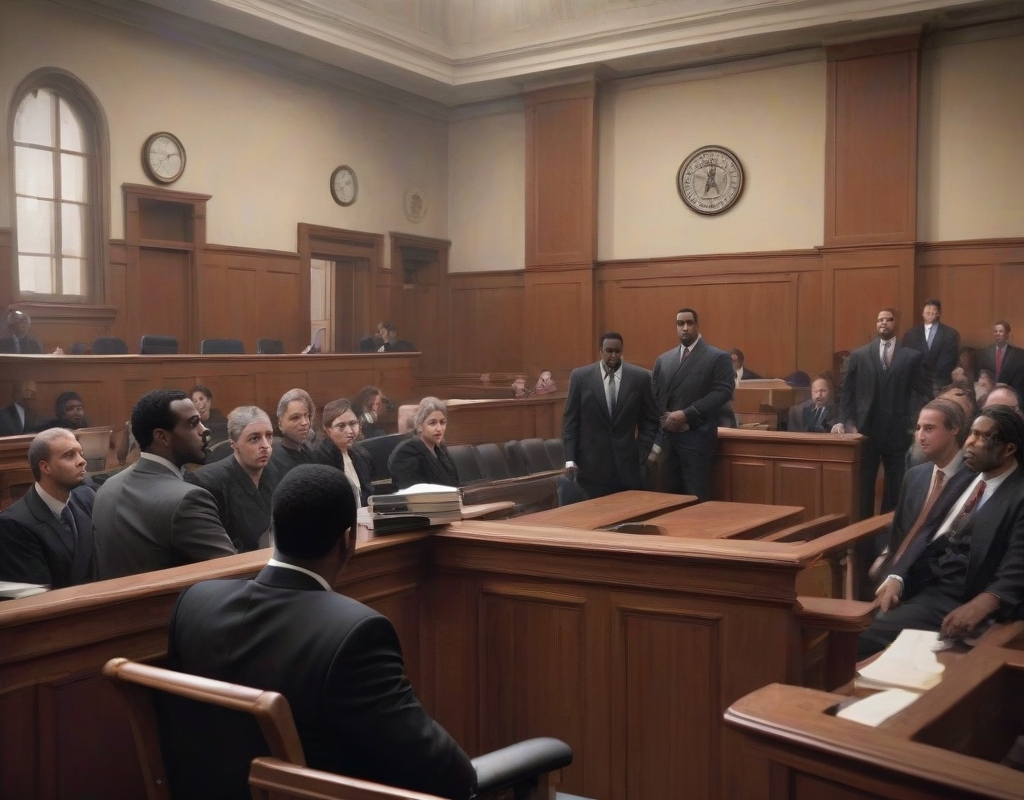Sean “Diddy” Combs, a titan of the music industry, is presently embroiled in a prominent legal battle that has commanded the national spotlight. Facing grave charges in a sex trafficking case, Combs’ fight for bail has been fraught with complexities, recently experiencing another set back as a decision on his bail was deferred. This delays any resolution on whether Combs can await trial in a less restrictive environment.
Sean Combs has long been a celebrated figure in the music world, renowned for his influential hits and groundbreaking contributions. However, the current charges against him are serious, involving allegations of coercion and abuse, purportedly spanning several years and involving multiple victims. The accusations include a variety of severe crimes, such as kidnapping, arson, and physical abuse, to which Combs has pleaded not guilty, asserting his innocence and describing the allegations as completely baseless.
The most recent activity in this case occurred during a bail hearing in a New York court where Combs’ representation petitioned for his release. This marked the third attempt by his legal team to secure bail since his initial arrest. The defense suggested rigorous monitoring conditions, proposing that Combs could be confined to his Miami Beach property or a Manhattan apartment, effectively placing him under house arrest.
Federal prosecutors, however, stood firmly against the notion of granting Combs bail. They expressed concerns regarding the potential for witness tampering and undue influence, pointing to Combs’ substantial resources and public influence. They argued that Combs might utilize these capabilities to skew the legal process to his favor, potentially even reaching out to the public and media to shape the narrative to his benefit.
On the flip side, Combs’ defense lawyers vehemently defended his character and argued for his release. They suggested that the stringent restrictions under their proposed house arrest scenario would mitigate any risk he might pose. The lead attorney for Combs, Anthony Ricco, challenged the portrayal of Combs as “lawless,” advocating for his client’s respect for the judicial process and expressing confidence in Combs’ adherence to all specified legalities if bail were granted.
The judge, Arun Subramanian, after hearing arguments from both sides, decided to postpone the bail decision, asking for additional legal briefs to be submitted. This move delays any immediate resolution and adds a layer of uncertainty to Combs’ situation. A definitive ruling on his bail request is anticipated next week.
As Combs awaits this decision in a Brooklyn federal facility, the toll on his personal life and family becomes increasingly evident. His family members have been a steadfast presence at his hearings, underscoring the personal stakes involved. Combs even spent his birthday in confinement, a scenario that starkly contrasts his usual celebratory public persona.
Beyond the personal impacts, the case against Combs has broader societal implications, particularly concerning power dynamics within the entertainment industry. The charges allege a pattern of abuse and manipulation, echoing past scandals where high-profile figures misused their positions for coercive or illicit purposes. These instances provoke discussions on ethical practices and accountability in Hollywood and beyond.
Legal commentators on the case have pointed out challenges in handling high-profile cases such as Combs’ where issues of fairness and public influence come to the forefront. Mary Anderson, a defense attorney noted for handling celebrity cases, emphasized the need for a meticulous examination of both the evidence and any proposals concerning house arrest arrangements. Her insights underscore the difficulties in balancing a fair trial against the backdrop of intense media and public scrutiny.
Looking ahead, Combs is slated to stand trial starting May 5, 2024. The outcome of the impending bail decision is set to notably affect his preparation for the trial and could serve as a commentary on how celebrity status impacts judicial proceedings in high-stakes cases.
Ultimately, as the legal proceedings against Combs unfold, they serve as a poignant reminder of the complex interplay among justice, media influence, and public perception, particularly when it involves figures of substantial fame and influence. With the legal process ongoing, the discourse surrounding these profound issues will undoubtedly continue, resonating well beyond the courtroom and sparking broader discussions about justice and accountability in the limelight. As all eyes remain on the developments of this case, the narratives that emerge are sure to stimulate a rich dialogue on the role of power in justice and society.




